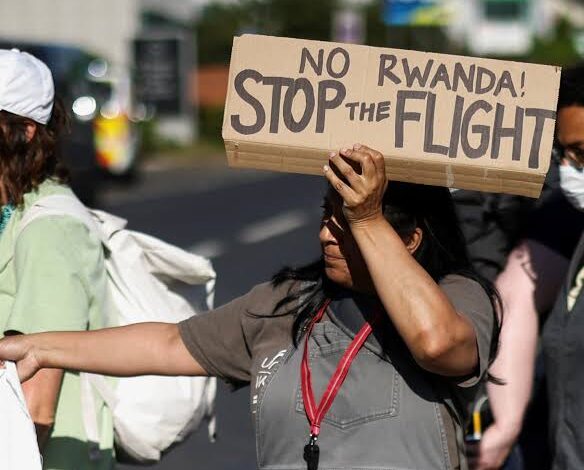
Faith Nyasuguta
Amnesty International has called for the abolition of a new law in Madagascar that permits chemical and surgical castration as punishment for those convicted of raping minors.
The rights group deems this measure “cruel, inhuman, and degrading.” President Andry Rajoelina introduced the amendments to the penal code last month, suggesting these severe penalties for individuals found guilty of child rape.
The proposed changes, including castration methods, have received approval from Members of Parliament. Amnesty International’s opposition to this law aligns with human rights principles, condemning the use of such punishments that violate the dignity and well-being of individuals.
The implementation of these measures raises concerns about the potential for human rights abuses and the need for a more humane and effective approach to addressing sexual offenses against minors.
In a statement, Tigere Chagutah, Amnesty’s regional director for east and southern Africa, said:
“In Madagascar, rape cases remain under-reported, and perpetrators often go free due to the victims’ and their families’ fear of retaliation, stigmatisation, and a lack of trust in the judicial system.”
“Implementing chemical and surgical castration, which constitutes cruel, inhuman and degrading treatment, as a punishment for those found guilty of raping minors will not solve this and is inconsistent with Malagasy constitutional provisions against torture and other ill-treatment, as well as regional and international human rights standards.”
It is important to note that castration laws, especially regarding chemical and surgical methods, are relatively uncommon globally and often raise ethical and human rights concerns. Here’s why:

- Ethical Considerations:
- Castration involves the removal or inhibition of reproductive organs, which raises significant ethical questions regarding bodily autonomy and human rights.
- The ethical implications include concerns about subjecting individuals to irreversible procedures that impact their physical and psychological well-being.
- Human Rights Concerns:
- Castration as a punishment is considered by many as a violation of fundamental human rights. It may be viewed as cruel, inhuman, or degrading treatment, contrary to international human rights standards.
- Human rights organizations often advocate against the implementation of such measures, emphasizing the importance of protecting individuals from inhumane or degrading punishment.
- Effectiveness and Rehabilitation:
- The effectiveness of castration as a deterrent or preventive measure for sexual offenses is a subject of debate. Research findings on its long-term impact on reducing recidivism are inconclusive.
- Critics argue that addressing the root causes of sexual offenses and focusing on rehabilitation and mental health support may be more effective in preventing future crimes.
- Legal and Constitutional Challenges:
- Implementing castration laws can face legal challenges related to constitutionality and adherence to international human rights treaties.
- Courts may assess whether such punishments align with legal principles and constitutional rights, leading to debates over the proportionality and legality of such measures.
- Public Opinion and Stigma:
- Public opinion on castration as a punishment varies widely. While some may see it as a justifiable response to heinous crimes, others argue that it perpetuates a cycle of violence and fails to address the complexities of sexual offenses.
- The stigma associated with castration may also contribute to challenges in successful reintegration into society for individuals who have undergone such procedures.
In summary, castration laws are rare globally due to the ethical and human rights dilemmas they pose. The broader consensus emphasizes the importance of exploring alternative, evidence-based approaches to preventing and addressing sexual offenses while upholding fundamental human rights.
RELATED:




